Sumac
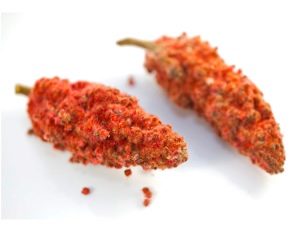
In botany, the name "sumac" combines more than two hundred species of shrubs and low trees. The fruits of one of these species are used in the East as a spice, which is also called sumac.
In other languages, the name of this plant sounds like this:
- German - Gerbersumach, Färberbaum, Sizilianischer Sumach;
- English - sumac, Sicilian sumac;
- French - sumac.
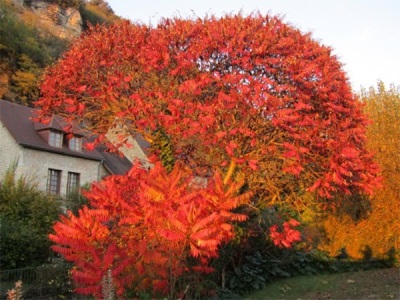
Appearance
The sumac tree is a small, evergreen plant that rarely exceeds 3 meters in height. Its leaves are long, with a serrated edge. Numerous small flowers of white or light green color are collected in inflorescences, forming fluffy panicles. When the plant fades, the berries ripen, from which the spice is subsequently produced.
Kinds
In total, about 250 sumac species are described in the scientific literature, among which the most common are:
- sumac Chinese;
- tannic sumac;
- deer-horned sumac.
These varieties can grow in the southern territories of Russia.
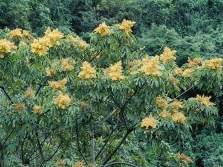
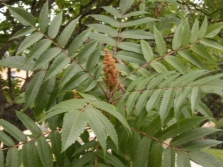
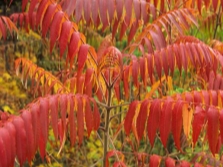
Where does it grow?
Sumac is distributed almost all over the world, but the largest number of species of this plant grows in South African countries. Sumac can be found in the southern part of Russia, as well as in the Crimea and the Caucasus. The homeland of the sumac tree, from the fruits of which the spice is produced, is considered the Mediterranean.
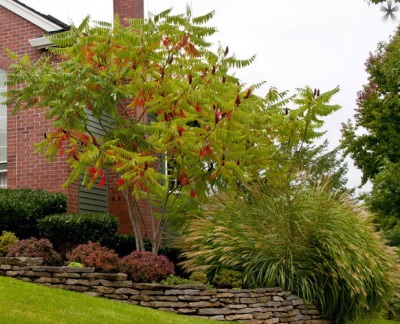
spice making method
The spice is made from the fruits of the plant, which are small red berries (drupes). When the berries are ripe, they are harvested, washed and dried. Dried berries are ground into powder. Sometimes salt is added to the finished spice.
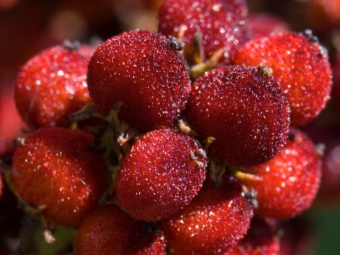
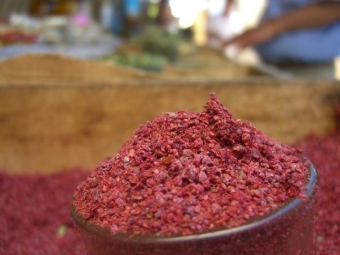
Where and how to choose?
Sumac is usually sold in the market or in shops selling oriental goods, including spices. High-quality sumac - homogeneous grinding, does not contain debris and fragments of bones. The color of the spice should be neither too bright nor too light. The "correct" sumac is ruby or burgundy in color and has a faint sour fruit smell.
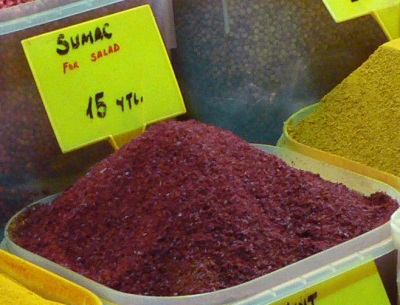
Characteristics
- reddish-burgundy color;
- sour, astringent taste;
- very weak, slightly sour aroma.
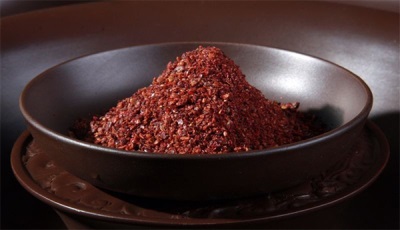
Nutritional value and calories
Nutritional value and calorie content in 100 grams of dry spice
| Squirrels | Fats | Carbohydrates | calories |
|---|---|---|---|
| 5 gr. | 8 gr. | 38 gr. | 244 kcal |
You can learn more about sumac and its properties from the video.
Chemical composition
The chemical composition of sumac leaves includes B vitamins, micro and macro elements, malic, succinic, tartaric and citric acids.
Beneficial features
- has an anti-inflammatory effect;
- fights fungal infections;
- is a valuable source of vitamin C, omega-3 fatty acids and tannins;
- has an antioxidant effect;
- produces an antimicrobial effect;
- is a diuretic;
- regulates bowel activity.
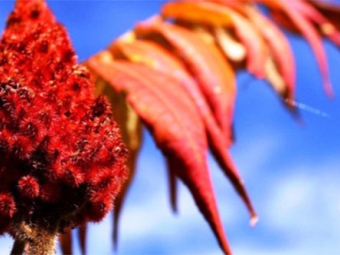
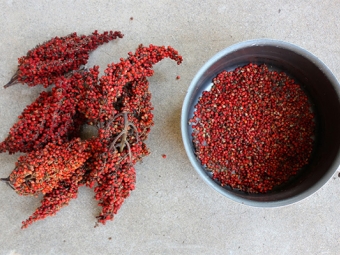
Harm
- In large doses, this spice increases blood clotting.
- Since sumac contains a large amount of acids, it should not be consumed by people suffering from gastric diseases.
Application
In cooking
- as part of various dishes, sumac can replace lemon juice or salt;
- in the Caucasus, sumac is added to the barbecue marinade;
- with the help of sumac, you can give dishes a red or pink tint;
- sumac sets off the taste of meat, poultry and fish;
- this spice goes well with legumes and cereals;
- sumac is used to make spicy salad dressings;
- with the addition of sumac in the East, canned food and marinades are prepared;
- in some countries, sumac is used in the production of sausages.
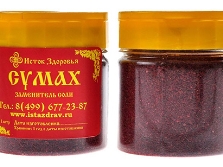

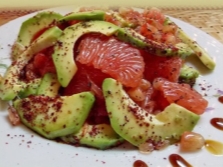
Lamb shish kebab
Carefully process 1 kg of lamb - rinse and remove films and veins. Cut the meat into cubes. Take 200 g of fat tail fat, cut off the skin from it and cut into slices. Prepare spices: mix 1 tsp. salt, 1 tsp zira and 1 tbsp. coriander. Grate the meat with spices and leave for 60 minutes in a cool place. When the lamb is marinated, string the pieces of meat on skewers, alternating them with the fat tail. Cook skewers on coals until a brown crust forms. Serve shish kebab with seasoning of onion rings, mashed with 1 tbsp. sumac.
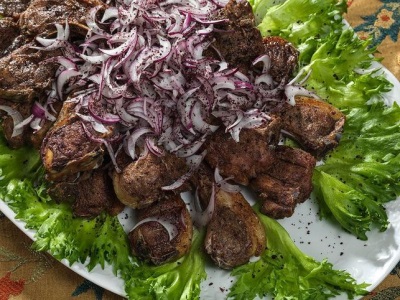
Roasted tomato salad
Take a few medium-sized tomatoes (it is better to choose bunch tomatoes that are sold on a branch), cut off the tops from them, sprinkle with salt and pepper and leave to languish in the oven, heated to a temperature of 100 degrees for 30 minutes. Prepare the marinade: mix 1 tbsp. wine vinegar, 1 tsp. sugar and 1 tsp. sumac. In the resulting mixture, soak the red onion, cut into rings. Cut the baked tomatoes in half, add 200 grams of sour cream and pickled onions to them. Rinse a bunch of lettuce leaves of different varieties, dry and put on the bottom of the dish. Put the tomatoes in sour cream and onion sauce on top of the salad.
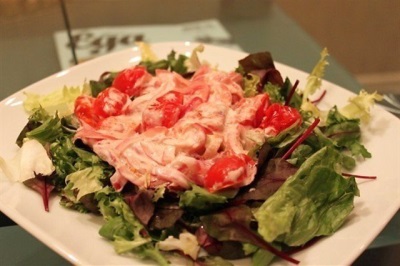
In medicine
Sumac can be used as an aid in the treatment and prevention of certain diseases, for example:
- intestinal disorders;
- diarrhea;
- intestinal colic;
- cystitis;
- burns;
- fever;
- beriberi;
- inflammation of the liver;
- hypoglycemia;
- high blood cholesterol;
- diabetes;
- obesity;
- arthritis;
- bronchitis;
- colds;
- diseases of the cardiovascular system;
- stroke.

cultivation
In the conditions of central Russia, it is quite difficult to grow a sumac tree, since this plant needs a lot of light and heat. But if your personal plot is located in the southern latitudes, you can try to decorate it with this tree, which is still exotic for our country.
A few recommendations:
- For planting, it is better to buy two- or three-year-old seedlings.
- The distance between seedlings should not be less than 2 meters.
- When planting, the roots should be deepened by about 4 cm.
- Immediately after planting the plant, the soil should be well moistened and covered with a layer of peat.
- The plant does not need abundant watering.
- Periodically feed the soil with mineral fertilizer.
- For the winter, sumac bushes should be carefully covered with dense material.
- The plant can withstand short frosts. Frozen branches just need to be cut.
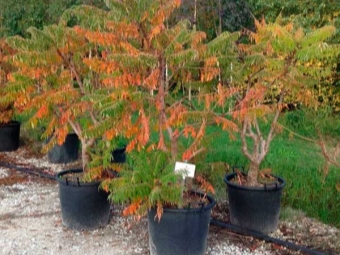
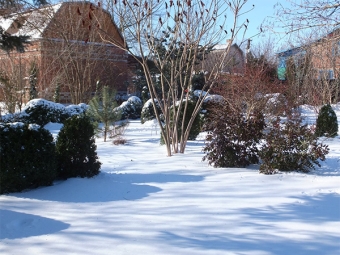
Interesting Facts
- The name of this spice comes from the ancient Aramaic word, which translates as "red".
- For ancient artists, sumac powder diluted in water served as red paint.


















The cream, which contains sumac, really helps with joint pain.
And I wonder: can sumac be grown in an apartment?
Of course you can, lemons grow.
I tried this sumac - I liked it, what you need.
I have diabetes, I drink the fruit of the vinegar tree. It helps lower sugar.
I don’t know about the southern regions, but this sumac has been growing in my Bryansk region for several years, has already endured several winters (and not exactly mild ones. It blooms, gives layering (a lot), comes out of winters without damage (at least I don’t noticed).